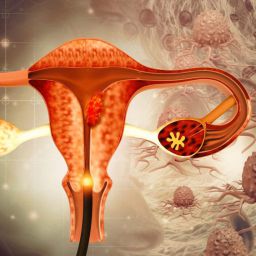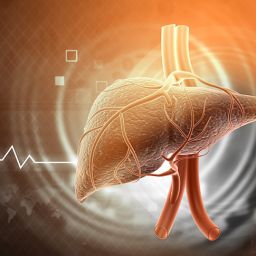
1. Hypothyroidism and Weight Gain
Hypothyroidism is one of the most common thyroid disorders and occurs when the thyroid gland produces too little thyroid hormone. This condition slows down the body’s metabolism, leading to weight gain in many affected individuals. While hypothyroidism itself does not cause rapid or excessive weight gain, it can make it harder for individuals to lose weight and can cause subtle, gradual weight increases.
How Hypothyroidism Contributes to Weight Gain:

- Slower Metabolism: The thyroid hormones T3 and T4 regulate metabolism. When their production is low, the body’s ability to burn calories efficiently decreases, leading to weight gain.
- Water Retention: Hypothyroidism can also cause the body to retain water, which can contribute to bloating and a feeling of fullness or puffiness, often mistaken for fat gain.
- Fat Storage: The decreased metabolic rate leads to more calories being stored as fat rather than being used for energy.
- Reduced Physical Activity: Individuals with hypothyroidism often experience fatigue, which can lead to a decrease in physical activity levels, further contributing to weight gain.
2. Hyperthyroidism and Weight Loss vs. Weight Gain
Hyperthyroidism, on the other hand, is the condition where the thyroid produces too much thyroid hormone. This increases the metabolic rate, leading to weight loss rather than weight gain. However, in some cases, the transition between hyperthyroidism and hypothyroidism (such as after treatment) can result in temporary weight gain.
How Hyperthyroidism Affects Metabolism and Weight:
- Increased Metabolism: Hyperthyroidism accelerates metabolism, leading to weight loss as the body burns calories at a faster rate.
- Possible Post-Treatment Weight Gain: Treatments for hyperthyroidism, such as radioactive iodine therapy or thyroidectomy, can cause the thyroid to become underactive, leading to hypothyroidism and the associated risk of weight gain.
In some cases, people who were previously diagnosed with hyperthyroidism may experience a significant weight gain after treatment, as their metabolic rate slows down after their thyroid hormone levels are normalized or reduced.
3. Subclinical Hypothyroidism and Its Impact on Weight
In some individuals, thyroid function may be mildly impaired without clear symptoms of hypothyroidism. This is known as subclinical hypothyroidism, where thyroid hormone levels are slightly lower than normal, but not enough to produce noticeable symptoms.
While the symptoms of subclinical hypothyroidism can be mild, there is evidence to suggest that even mild hypothyroidism can influence weight, though the effects may not be as pronounced as in overt hypothyroidism. Individuals with subclinical hypothyroidism may experience subtle changes in weight, including a gradual increase over time.
4. Pregnancy and Thyroid Function
During pregnancy, thyroid hormone levels naturally fluctuate to accommodate the needs of the developing fetus. However, gestational hypothyroidism or hyperthyroidism can occur, affecting both the mother’s and baby’s health.

Gestational Hypothyroidism:
In this condition, a woman’s thyroid does not produce enough hormone during pregnancy, potentially leading to weight gain. Uncontrolled hypothyroidism during pregnancy can also increase the risk of complications such as preeclampsia and premature birth.
Gestational Hyperthyroidism:
In some cases, pregnancy can trigger hyperthyroidism. The increase in thyroid hormone production can lead to weight loss in some women, although post-pregnancy, thyroid hormone levels may return to normal.
5. Other Thyroid Disorders and Their Role in Weight
While hypothyroidism and hyperthyroidism are the two primary thyroid disorders related to weight changes, there are other thyroid-related conditions that can contribute to weight issues.
- Thyroiditis: Inflammation of the thyroid gland, known as thyroiditis, can lead to fluctuations in thyroid hormone production, resulting in both weight gain and weight loss at different stages of the condition.
- Thyroid Cancer: Though not typically linked directly to weight gain, some individuals undergoing thyroid cancer treatment may experience weight changes due to the impact of surgery, radiation therapy, or hormone replacement therapy.
6. How to Manage Weight with Thyroid Disease
Managing weight with thyroid disease requires a multifaceted approach that takes into account thyroid function, overall health, and lifestyle factors. Here are some strategies to help manage weight:

For Hypothyroidism:
- Medication Management: Thyroid hormone replacement therapy is the most common treatment for hypothyroidism. It can help normalize hormone levels and improve metabolic function, potentially aiding in weight loss.
- Diet and Nutrition: A balanced diet with an emphasis on nutrient-dense, whole foods can help regulate weight. Focus on foods high in fiber and lean protein to support metabolism and avoid excess caloric intake.
- Physical Activity: Regular exercise is crucial for maintaining a healthy weight. Even low-impact activities, such as walking or swimming, can help manage weight by boosting metabolism and improving muscle tone.
For Hyperthyroidism:
- Medication and Treatment: Anti-thyroid medications or treatment options such as radioactive iodine can help reduce excess thyroid hormone levels and stabilize metabolism.
- Diet and Hydration: Staying hydrated and following a nutrient-dense diet can help maintain energy levels and prevent muscle loss, which can be a concern during hyperthyroidism.
- Exercise: Regular physical activity is important, but those with hyperthyroidism should avoid overexerting themselves until their thyroid hormone levels are under control.
7. The Importance of Regular Monitoring and Medical Guidance
If you have thyroid disease and are concerned about weight gain or weight loss, it is essential to work closely with your healthcare provider. Regular thyroid function tests will help monitor hormone levels and ensure they are within the optimal range for your health. Your doctor may adjust your medication, recommend lifestyle changes, or refer you to a dietitian to help manage your weight more effectively.
Thyroid disease can indeed play a significant role in weight management, whether through hypothyroidism, hyperthyroidism, or other thyroid-related conditions. The relationship between thyroid hormones and metabolism is complex, and weight changes due to thyroid dysfunction can vary from person to person. Understanding how thyroid disease affects weight can help individuals manage their health more effectively and take appropriate steps to prevent or manage weight gain. With proper medical care, dietary adjustments, and regular exercise, most people with thyroid disorders can achieve a healthy weight and maintain an optimal metabolic rate.















